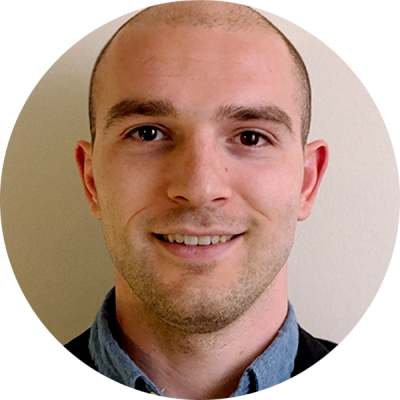
Fadi Jacob
As an M.D./Ph.D. student in Hongjun Song’s Lab, I had the opportunity to collaborate with neurosurgeons and pathologists to develop a three-dimensional organoid model for glioblastoma directly from surgically resected tumor tissue. By avoiding cell dissociation and clonal selection, glioblastoma organoids better recapitulate the cellular, transcriptional and mutational diversity of patients’ tumors, providing a valuable tool to test targeted therapeutics. My hope is that this model system will be utilized to test chemotherapeutic drugs and immunotherapies targeted to each patient’s unique tumor before initiating treatment, to maximize the probability of survival for those affected by this devastating disease.
Questions & Answers
Why did you choose Johns Hopkins for your work?
I chose Johns Hopkins for my M.D./Ph.D. training because of its reputation as an exceptional hospital and research institute. with excellent clinical training and research labs headed by many of the world’s leading scientists.
What does receiving this award mean to you personally and professionally? Do you have any connection with the particular award you received?
Receiving the Paul Ehrlich Award is an honor, and I am humbled to receive this award amongst all the talented young researchers at Johns Hopkins. Dr. Ehrlich popularized the concept of the “magic bullet,” an analogy for using targeted therapies to treat specific microbial infections without harmful side effects. This award is especially meaningful to me, as I hope to use the model system I developed to find the “magic bullet(s)” to treat each patient’s tumor. This award has motivated me to continue a career in science in pursuit of more effective treatments for devastating diseases.
What contributed to your project’s success?
Many factors contributed to my project’s success, including excellent clinical collaborators and colleagues in the Song Lab; guidance from mentors; and a passion for developing better preclinical models for human diseases. My experience with human stem cell and brain organoid cultures provided many of the skills and insight necessary to develop a more clinically relevant model system for glioblastoma.
What thoughts do you have about Young Investigators’ Day itself, as a celebration of the roles students and fellows play in research at Johns Hopkins?
Basic science research is difficult and requires a large investment of time. Young Investigators’ Day serves an important role in recognizing the often-overlooked achievements of graduate students and postdoctoral fellows. I am extremely humbled to receive this award amongst all the fantastic trainees at Hopkins and will use this recognition as motivation to continue pursuing a career in medical science to gain a better understanding of human diseases and to improve patient outcomes.
What has been your best/most memorable experience while at Johns Hopkins?
My most memorable experience while at Johns Hopkins would definitely be the “College Olympics,” during my first and second years in medical school. The competitive games gave us a much-needed break from academics and allowed us to interact as classmates towards a common goal.
What are your plans over the next year or so?
My goal is a career that combines basic science with clinical experience to better understand and develop therapeutics for conditions that currently have no effective treatments. I plan to return to medical school in August to finish my degree requirements and then pursue residency and fellowship training.
Tell us something interesting about yourself.
I am proud to be the first in my family to graduate from college and pursue a career in science and medicine. I enjoy spending time with friends and family, trying new foods, playing sports and indulging in the latest computer games.